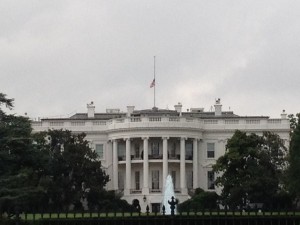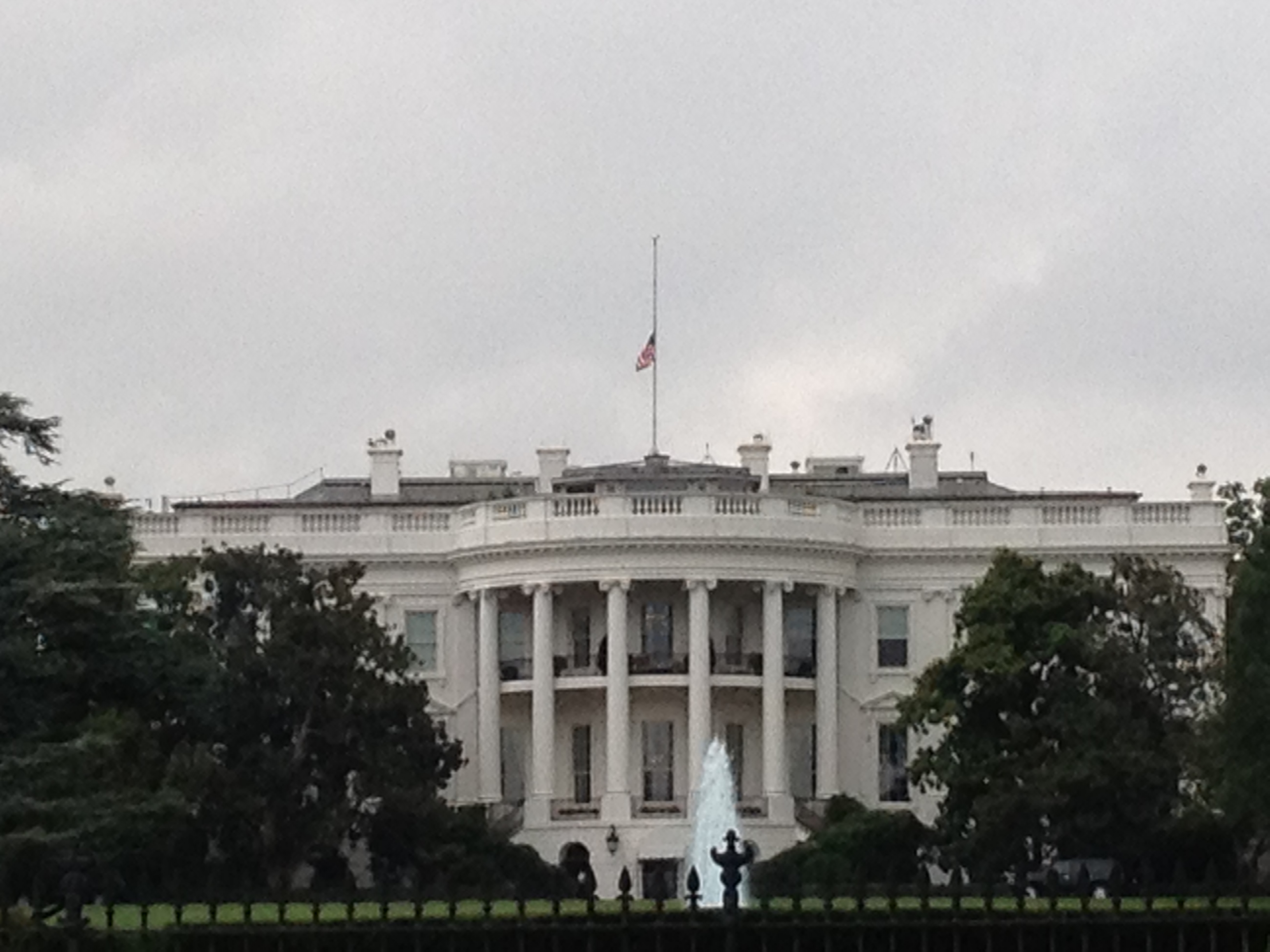In light of the Connecticut shooting, I am sharing this piece I wrote for REPSSI in July, just after the Colorado shooting.
It’s too soon to have to share it again.
“When I was a boy and I would see scary things in the news, my mother would say to me, ‘Look for the helpers. You will always find people who are helping.’” ~Fred Rogers
***

As we drove past the White House and the Lincoln Memorial on Constitution Avenue yesterday, Tapfuma and Lynette noticed the flags at half-mast.
“It must be because of the tragedy,” our conversation began.
Flags in Washington D.C. are honoring the 12 people killed in a shooting in Aurora, Colorado on the day REPSSI staff arrived in the U.S.
“What causes a person to do such a thing?” is the inevitable question that comes next.
With two staff of Africa’s leading group of experts on social and emotional well-being of children and youth in the car, I was sure to pay close attention.
“How separate from his family and community the killer must have been,” Tapfuma offered.
“And what must his parents feel?” Lynette asked, herself a mother.
As an African-founded, -based and –led organization, REPSSI operates at its core with communities and extended families as the basis of quality care for children and youth.
Like the tragedy in Aurora, the devastation of poverty, HIV and conflict can result in complicated, traumatic grief for those affected.
Yesterday, REPSSI’s Head of Research, Lisa Langhaug, presented at the XIX International AIDS Conference a paper entitled, “When time doesn’t heal: complicated grief among orphans in rural Zambia.” Her presentation highlighted the critical role that community-based initiatives that directly reach households play in alleviating this grief.
“When something like this happens,” Lynette offered, “something is broken. The edges are jagged.”
“And yet this is when the best of what exists in a community can come out,” said Tapfuma. “Through loss and grief, people can realize what binds them.”
So perhaps the question to ask in Aurora or Oslo, or even Lusaka or Baghdad is not “how could they do it?” but rather is “how can we as a community or a society let it happen?”
***
My thanks to Lynette Mudekunye, REPSSI’s Deputy Executive Director and Dr. Tapfuma Murove, Head of Advocacy and Communications, for adding their voices and viewpoints to this post.
***
Related Posts
Community Resilience: An Untapped Resource for Sustainable Development?
“Emotional and social well-being is not an afterthought.”
Why I support isolated aid workers across the globe and so should you!

